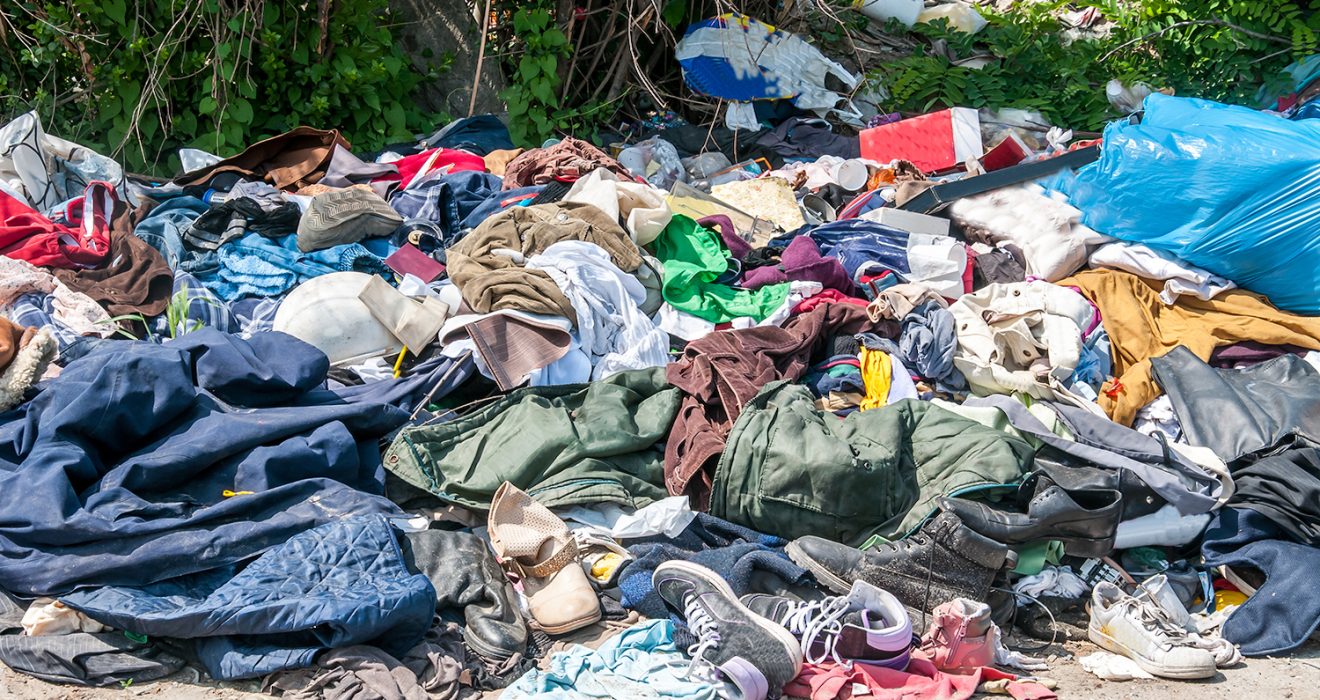France, Sweden, and Denmark are leading the charge within the European Union (EU) to propose a ban on the export of used clothing. This initiative arises from the pressing concern over the escalating crisis of textile waste, exacerbated significantly by the proliferation of fast-fashion retailers. In 2022 alone, European nations exported a staggering 1.4 million metric tons of used textiles, more than double the amount recorded in 2000. This surge underscores the urgent need for decisive action to mitigate the environmental repercussions of textile waste. By delving into the objectives of this proposal, examining the scale of textile waste across Europe, and exploring the driving forces behind France’s proactive stance, this article seeks to shed light on the gravity of the situation and the imperative for collaborative efforts to address it effectively.
The Scale of the Problem: Textile Waste in Europe
The scale of textile waste in Europe is staggering, as evidenced by the data provided by the United Nations. In 2022, the European Union (EU) exported a whopping 1.4 million metric tons of used textiles. This figure is strikingly higher than that recorded in 2000, emphasizing the alarming rate at which textile waste has proliferated in recent years. The disposal of these discarded clothes presents a significant environmental challenge, especially in African countries, where a considerable portion of unsold items ultimately finds its way into landfills. This practice not only exacerbates pollution but also contributes to environmental degradation, posing serious threats to ecosystems and public health. The exponential growth of textile waste underscores the urgent need for proactive measures to address this pressing issue and mitigate its adverse impacts on both local and global scales.
Environmental Implications: Textile Waste and Pollution
The disposal of used clothes has far-reaching environmental implications, with significant risks associated, especially in regions such as Africa. Despite attempts to recycle or resell used textiles, a substantial portion inevitably ends up in landfills. In these environments, the decomposition process releases harmful chemicals and pollutants into the surrounding soil and water sources, posing serious threats to both human health and ecosystems.
The acknowledgment by the European Union (EU) of the adverse effects on African nations underscores the urgency of addressing this issue. The disproportionate burden placed on these regions due to the influx of textile waste highlights the need for immediate action to mitigate environmental degradation and prevent further harm.
Furthermore, the presence of hazardous substances in discarded textiles can exacerbate pollution levels, leading to long-term ecological damage and health risks for local communities. By recognizing the interconnected nature of textile waste disposal and environmental degradation, stakeholders can work towards implementing sustainable solutions that prioritize waste reduction, recycling, and responsible consumption practices.
Proposal Details: France’s Push for a Ban on Exports
France, with backing from Sweden and Denmark, is championing a proposal within the European Union (EU) to enforce a ban on the export of used clothes. This initiative is a proactive step towards addressing the escalating crisis of textile waste, particularly its detrimental impact on African countries where local waste management systems are often overwhelmed.
The core objective of the proposal is to stem the flow of textile waste to African nations, where it contributes significantly to environmental pollution and strain on already fragile waste management infrastructures. By targeting the root cause of the issue—the rampant consumerism perpetuated by fast-fashion retailers—the proposal aims to instigate a shift towards more sustainable practices within the fashion industry.
Through this ban, France, Sweden, and Denmark seek to disrupt the cycle of overconsumption and disposal, encouraging greater responsibility and accountability among clothing manufacturers and consumers alike. By promoting practices such as reusing, repairing, and recycling, the proposal endeavors to foster a more circular economy within the fashion sector, reducing reliance on single-use items and minimizing the environmental footprint of textile production and consumption.
Motivations and Rationale: Addressing the Fast-Fashion Culture
France’s environment ministry attributes the escalating textile waste problem to the throwaway attitude fostered by fast-fashion retailers. These companies thrive on overconsumption, enticing consumers with cheap, disposable clothing that quickly falls out of style. By implementing measures to reduce waste and promote responsible consumption, France aims to challenge the prevailing culture of disposability and emphasize the importance of sustainable fashion practices.
The Path Forward: A Call for Collective Action
The proposal to ban exports of used clothes underscores the need for collective action to tackle the pressing issue of textile waste. As European countries grapple with the environmental consequences of their consumption habits, initiatives like France’s serve as a crucial step towards fostering a more sustainable future. With the proposal slated for discussion at an upcoming Environment Council meeting in Brussels, the international community has an opportunity to confront the challenges posed by textile waste and pave the way for meaningful change.

